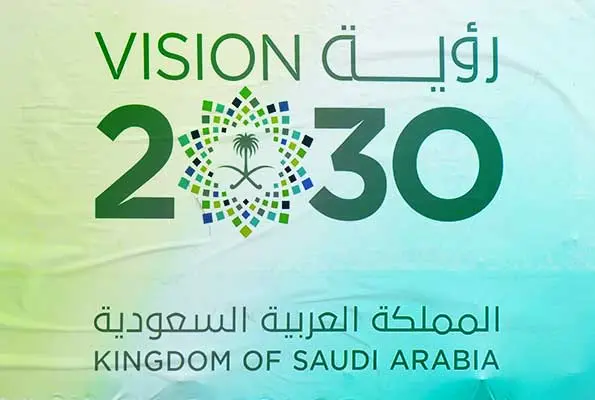Saudi Arabia has successfully obtained the rights to host both the World Cup in 2034 and the Riyadh Expo 2030, giving tangible form to its ambitious ‘Vision 2030’. With these accomplishments, the Kingdom enters a new chapter that will see it become a major international centre for entertainment.
Saudi Arabia is collaborating with knowledgeable companies to create theme parks like the Rig, and giant stadiums like the MBS Stadium, and promote international sports like MMA, football, adventure sports and Esports.
The Rig
The creation of these top-notch attractions is a component of Saudi Arabia’s broader plan to grow its leisure economy. To improve the quality of life in the Kingdom and establish new standards for entertainment around the world, this strategy calls for the construction of over 24 theme parks and 420 entertainment venues.
With the help of companies like WhiteWater, Saudi Arabia is rapidly emerging as a major force in the world’s entertainment and recreation sectors. The Rig, a tourism project supported by Saudi wealth funds, will include an offshore entertainment hub modelled after an oil platform.
The project is being constructed by the Oil Park Development Company (OPDC), which released a master plan on January 17, 2024. It is situated 40 kilometres from the eastern province of Saudi Arabia.
The Saudi Public Investment Fund (PIF) is the sole owner of the closed joint stock corporation Oil Park Development Corporation (OPDC).
In an apparent reference to Saudi Arabia’s “rich oil and gas heritage,” the property, which is close to Al-Juraid Island and the Berri Oil Field in the Arabian Gulf, is being marketed as an adventure tourism destination.
By 2032, the project—which will occupy more than 300,000 square meters—aims to draw 900,000 tourists annually.
It will have a marina, helipads, extreme sports and Adventure Park, eleven restaurants, and three hotels totalling eight hundred rooms. Aside from water activities like a diving centre, it will also have an e-sports centre, a theatre, a splash park, an amusement park, and a multifunctional arena.
CEO of The Rig, Raed Bakhrji predicted that the attraction will draw over 900,000 people annually by 2032. It appeals to a diverse variety of domestic, regional, and worldwide audiences, including those looking for adventure, leisure, and balanced vacation experiences.
According to him, the newest attraction “celebrates Saudi Arabia’s oil and gas legacy, and creates an exceptional and unique experience that makes it a must-visit destination.” It is modelled after offshore oil platforms.
Promoting MMA
Over the last two years, Saudi Arabia has achieved great strides in the area of Mixed Martial Arts (MMA), putting it in a position to establish itself in the worldwide sports landscape.
This development is consistent with the nation’s strategic Vision 2030 programme and reflects the country’s wider aspirations in sports. Prominent mixed martial arts fighter Abdullah al-Qahtani perfectly captures this feeling in a recent interview with Al Arabiya English.
The Professional Fighters League (PFL) recently announced that it will be establishing a new league in the Middle East in 2024, which serves as more evidence of the region’s growing prominence in mixed martial arts.
This progression aligns with Saudi Arabia’s continuous endeavours to broaden its economy and provide resources to sports, which are essential elements of its ‘Vision 2030’ objectives. In recent years, the number of sports federations that have emerged around the nation has increased significantly, as has the involvement in sports.
MBS Stadium
The Prince Mohammed bin Salman Stadium, which is scheduled to be built near Qiddiya, about 40 minutes from Riyadh, is a monument to behold. The arena, which has an automated temperature control system and a retractable ceiling, will hold a variety of sporting events, including mixed martial arts competitions.
The progress made in the sports industry of Saudi Arabia is indicative of a broader strategic move towards diversification and cultural enrichment. In addition to receiving international attention for hosting significant international competitions and events, the Kingdom also encourages a healthy and active lifestyle among its citizens, which is in line with Vision 2030’s goals.
The Board of Directors of the Qiddiya Investment Company (QIC) announced that the Kingdom’s new 45,000-seat stadium will be located in Qiddiya. It is expected to be the world’s first completely integrated arena with a combined retractable roof, pitch, and big LED wall.
Some of Saudi Arabia’s largest sporting, entertainment and cultural events will take place in the multipurpose Prince Mohammed bin Salman Stadium, according to a statement cited by the Saudi Press Agency (SPA).
The 45,000-seat multipurpose stadium has been put forward as one of the potential locations for the ‘FIFA World Cup 2034’. It will also serve as the home field for Saudi Pro League football teams Al-Hilal and Al-Nassr after it opens.
It is also well-positioned to play home to some of the greatest sporting events in the region, such as the Asian Cup, the Saudi King Cup, and potentially the Asian Games in 2034.
There will be multiple events for guests to enjoy in one day, such as boxing, football, esports, concerts, and theatre shows.
Modern holographic technology will be used in the stadium to allow fans to virtually engage with celebrities and stars. This innovative technology will give fans immediate access to real-time data and information.
The stadium offers an extended play experience with direct and easy access to Qiddiya City’s bustling Gaming & Esport zone as well as other city entertainment alternatives nearby, making it a central venue in an urban entertainment zone.
The stadium is connected to the city centre by several transit options, such as park ‘n ride and drop-off zones. It is also directly next to 50,000 square metres of retail, dining, and entertainment space, as well as lodging possibilities.
With its climate-controlled amenities, the venue will be able to accommodate events all year long. An environmentally friendly cooling lake that is built right under the stadium will cut energy use.
The air conditioning system will be pre-cooled by the lake using rainwater collected from the stadium and the surrounding area.



